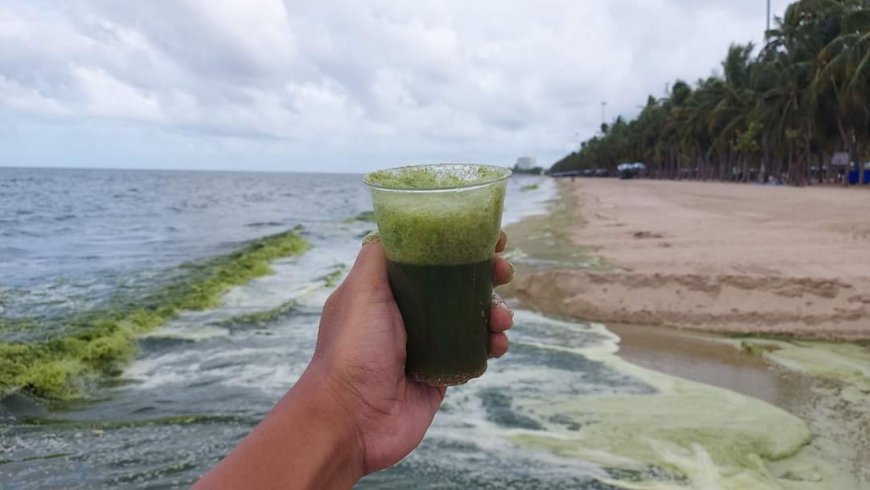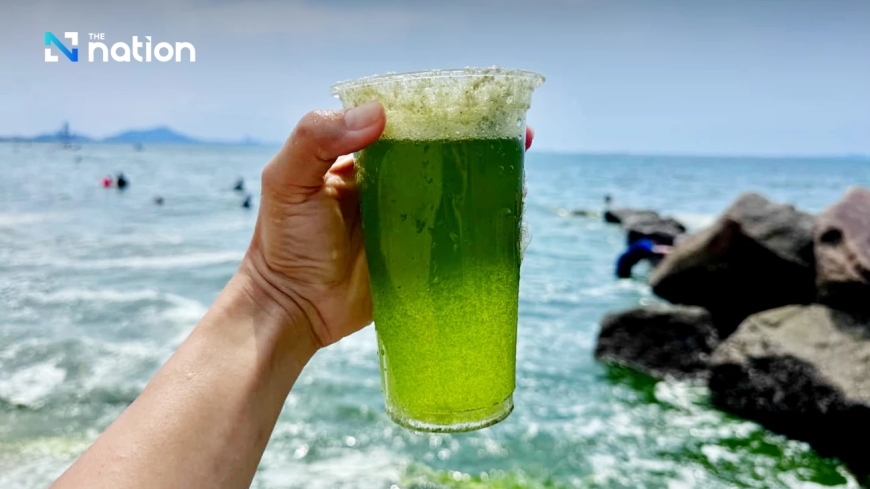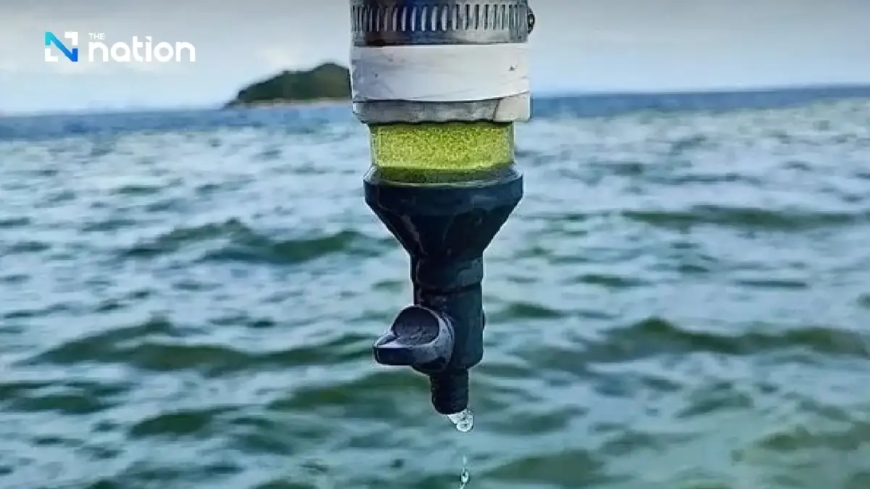Despite the absence of rain, Bang Saen Beach's plankton bloom turns the sea a vibrant green color.
Pictures of a very green sea at Bang Saen beach were shared on Sunday by the Facebook page "Chob Jung Bang Saen" (In love with Bang Saen).

Despite the absence of rain, Bang Saen Beach's plankton bloom turns the sea a vibrant green color.
Even though it wasn't raining, Chonburi's well-known Bang Saen beach experienced a plankton bloom on Sunday morning—a phenomena often associated with the rainy season.

Pictures of a very green sea at Bang Saen beach were shared on Sunday by the Facebook page "Chob Jung Bang Saen" (In love with Bang Saen).
The photograph of green seawater in a glass was captioned: “Bang Saen is distributing matcha green tea for the first time in 2024.”

Actually, the Institute of Marine Science of Burapha University in Bang Saen had been warning since Saturday that the sea in Bang Saen was turning green. In a Facebook post on Saturday, it said the Bang Saen Telemetering Station had detected that the level of chlorophyll A at the beach had tripled on Friday night. It said the sea had turned partially green near Ratchanavi Bridge or the Bang Saen walking street.
Upon checking the water quality on Saturday morning, it found 6,143 cells of Noctiluca scintillans or “sea sparkle” per litre of water.
As of Saturday morning, the sea quality at Bang Saen was still safe for swimmers, the institute said.
Dr Thon Thamrongnawasawat, a marine expert from Kasetsart University’s Faculty of Fisheries, had earlier said that though plankton bloom usually occurs in the rainy season, it can be encountered in other seasons too due to human factors.
For instance, he said, wastewater released by humans into the sea contains a lot of food for bacteria and can thus cause the plankton to reproduce fast.
What's Your Reaction?























































